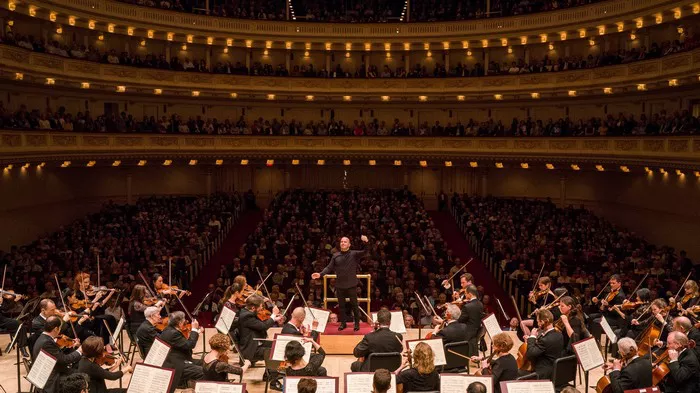Classical music and opera have captivated audiences for centuries. These art forms are celebrated for their emotional depth, technical mastery, and rich history. Despite the rise of modern music genres, many still flock to concert halls and opera houses. Understanding why people attend classical music and opera involves exploring various aspects, including historical significance, emotional impact, cultural value, and personal experiences.
I. Historical Significance
A Rich Legacy
Classical music and opera have deep historical roots. Composers like Mozart, Beethoven, and Verdi have left lasting legacies. Their works continue to be performed and cherished worldwide. These composers crafted pieces that are still studied and revered today. Attending a classical concert or opera can feel like stepping back in time, connecting with a tradition that spans centuries.
Evolution of the Art Forms
Both classical music and opera have evolved over time. From the Baroque period to the Romantic era, each phase brought new styles and innovations. This evolution is fascinating for many. It offers a glimpse into the changing tastes and cultural contexts of different periods. Watching a performance can be like witnessing a piece of history come alive.
II. Emotional Impact
Profound Emotions
Classical music and opera are known for their ability to evoke deep emotions. The complexity and richness of the music can stir feelings that are hard to express in words. Whether it’s the soaring highs of a symphony or the poignant lows of an opera aria, these performances can leave a lasting emotional imprint.
Catharsis
Many people find attending classical music and opera to be a cathartic experience. The intense emotions conveyed through the music and performances can help audiences process their own feelings. This emotional release can be therapeutic, providing a sense of relief and renewal.
III. Cultural Value
Preservation of Heritage
Attending classical music and opera helps preserve cultural heritage. These art forms are integral to many cultures around the world. By supporting performances, audiences contribute to keeping these traditions alive. This is especially important in a world where cultural homogenization is becoming more prevalent.
Exposure to High Art
Classical music and opera are often seen as high art. They are associated with sophistication and intellectual engagement. Attending these performances can be an enriching experience. It offers a break from the everyday and a chance to engage with something deeply beautiful and thought-provoking.
IV. Personal Experiences
A Sense of Community
Many people attend classical music and opera for the sense of community. These events bring together individuals with shared interests. This communal experience can be very fulfilling. It creates a sense of belonging and shared appreciation.
Unique Experiences
Each performance is unique. Even if a piece has been performed countless times, each rendition is different. This unpredictability makes every concert or opera special. The nuances of live performance can create magical moments that recordings simply cannot capture.
V. The Role of Education
Early Exposure
For many, the love of classical music and opera begins in childhood. Exposure to these art forms through education can spark a lifelong passion. School programs, family traditions, and community events often play a key role in this early exposure.
Lifelong Learning
Classical music and opera offer endless opportunities for learning. From understanding musical theory to exploring the stories behind operas, there is always more to discover. This aspect of continual learning can be very appealing. It keeps the experience fresh and engaging.
VI. The Power of Live Performance
Acoustic Excellence
One of the major draws of attending live classical music and opera is the acoustic experience. The sound quality in a concert hall or opera house is unparalleled. The resonance and clarity of live music create an immersive auditory experience that recordings cannot match.
Visual Spectacle
Opera, in particular, offers a visual spectacle. The elaborate sets, costumes, and stagecraft add another layer of enjoyment. This visual element enhances the storytelling and makes the experience more engaging.
VII. The Beauty of the Music
Aesthetic Pleasure
At its core, the draw of classical music and opera is the sheer beauty of the music. The melodies, harmonies, and rhythms create an aesthetic pleasure that is hard to match. This beauty speaks to the soul and provides a profound sense of joy.
Artistic Mastery
The technical mastery of the performers is awe-inspiring. Watching skilled musicians and singers bring complex compositions to life is a testament to human creativity and talent. This artistry is a major part of the appeal.
VIII. The Intellectual Challenge
Complex Structures
Classical music and opera are intellectually stimulating. The complexity of the compositions and the narratives in operas require active engagement. This intellectual challenge is rewarding for many. It offers a chance to exercise the mind and appreciate the intricacies of the art.
Analytical Enjoyment
For those who enjoy analysis, classical music and opera provide ample material. Breaking down a symphony’s structure or interpreting an opera’s themes can be deeply satisfying. This analytical aspect adds another layer of enjoyment.
IX. The Therapeutic Effect
Stress Relief
Listening to classical music and opera can be very relaxing. The calming effect of the music helps many people unwind and de-stress. Attending a live performance can enhance this effect, offering a peaceful escape from the hustle and bustle of daily life.
Mental Health Benefits
There are also documented mental health benefits. Studies have shown that listening to classical music can improve mood and reduce anxiety. The emotional depth and beauty of the music can provide solace and comfort.
See Also: Valuing Soviet Era Classical Music on Vinyl
X. Conclusion
Attending classical music and opera offers a rich and multifaceted experience. It connects people with history, evokes deep emotions, and provides cultural enrichment. The social, intellectual, and personal benefits make these art forms enduringly popular. Whether for the beauty of the music, the thrill of live performance, or the sense of community, people will continue to be drawn to classical music and opera for generations to come.

